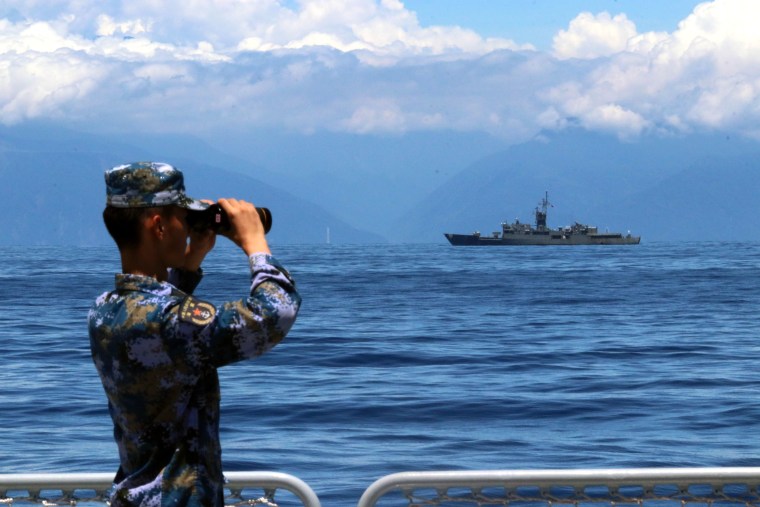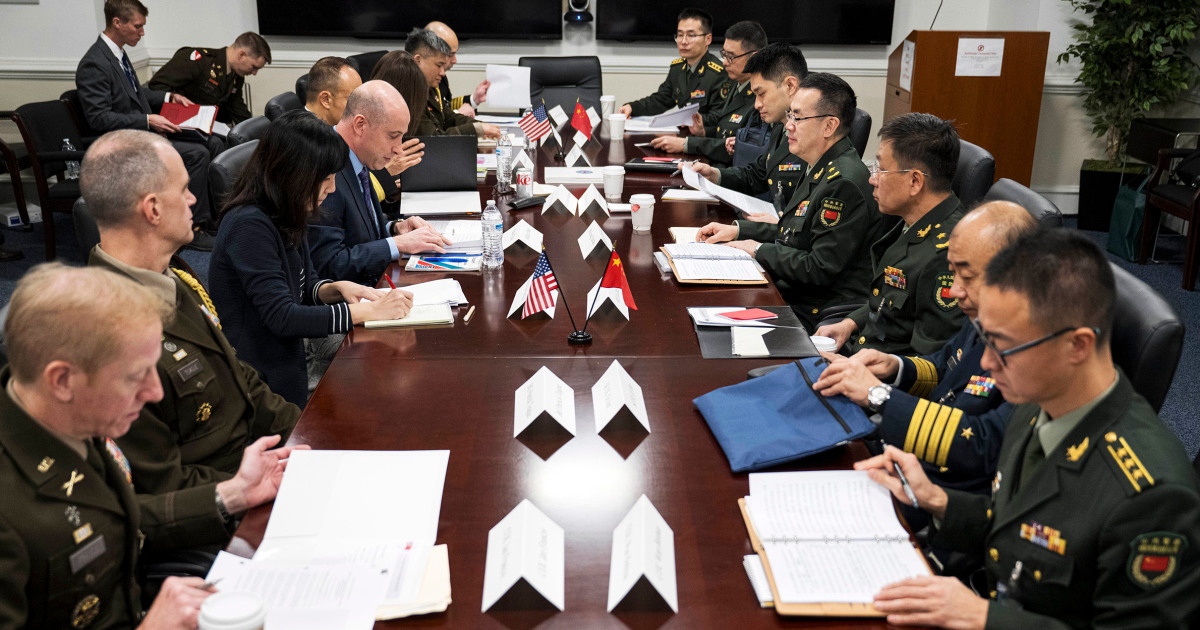HONG KONG — China said it would “never compromise” on its claims of sovereignty over Taiwan as the U.S. and China concluded two days of military talks in Washington, part of an effort to restore communication between the two countries’ militaries.
The talks were held days before Taiwan, a self-ruling island democracy, holds a presidential election that will shape its relationship with China, as well as ties between China and the U.S., Taiwan’s most important international backer.
China’s stated ambition to “reunify” with Taiwan, by force if necessary, is among the most sensitive issues between the U.S. and China, whose relationship has in recent years fallen to its lowest point in decades.
China said it would “not make any concession or compromise on the Taiwan question and demanded that the U.S. side abide by the one-China principle, honor relevant commitments, stop arming Taiwan, and not support Taiwan independence,” according to a readout published by the Chinese Defense Ministry on Wednesday.
The 17th round of the U.S.-China Defense Policy Coordination Talks was held Monday and Tuesday for the first time since 2021. They were led by Michael Chase, deputy assistant secretary of defense for China, Taiwan and Mongolia, and Maj. Gen. Song Yanchao, deputy director of China’s Central Military Commission Office for International Military Cooperation.
According to a Pentagon readout, Chase “highlighted the importance of maintaining open lines of military-to-military communication in order to prevent competition from veering into conflict.”
He also reiterated Washington’s commitment to its long-standing “One China” policy, under which the U.S. recognizes Beijing as the sole legitimate government of China but maintains unofficial relations with Taipei.

China said it was willing to develop a “healthy and stable” military relationship “on the basis of equality and respect.” It urged the U.S. to reduce its military presence and “provocation” in the South China Sea, a strategically important waterway that China claims virtually in its entirety, and to “stop supporting provocative actions” by certain countries, without identifying them.
The Pentagon said Chase “underscored the importance of respect for high seas freedom of navigation” in the face of continued Chinese “harassment” of Philippine vessels operating lawfully in the South China Sea.
President Joe Biden and Chinese Xi Jinping agreed to resume military ties at a meeting in San Francisco in November, their first meeting in a year. China had cut off military communications in 2022 after then-House Speaker Nancy Pelosi, D-Calif., visited Taiwan over its objections.
China has since increased its military activities in the Taiwan Strait, sending warplanes and naval vessels toward the island almost daily.
The talks at the Pentagon this week follow a video call last month between Gen. Charles Q. Brown Jr., chairman of the Joint Chiefs of Staff, and his Chinese counterpart, Gen. Liu Zhenli, the first high-level conversation between the two militaries in more than a year.
Taiwan, which rejects Beijing’s sovereignty claims, is on heightened alert ahead of its election Saturday. Government officials have accused China of attempting to influence voters through its military and other activities in the Taiwan Strait, including a series of balloons that have been spotted around the island since last month.
On Tuesday, the Taiwanese Defense Ministry issued an air raid alert saying China had launched a satellite and urging residents to be cautious. It later apologized for mistranslating the word “satellite” as “missile” in the English-language version of the alert and said the satellite had passed over the island without incident.
China has accused Taiwan’s governing Democratic Progressive Party of “hyping up the threat from the mainland” ahead of the election to gain voter support. Similarly, Taiwan’s main opposition party, the Kuomintang, said the government issued the alert Tuesday for political gain, which the Defense Ministry denied.
The satellite, named Einstein Probe, will be used to monitor “fleeting phenomena” in space, including the merging of black holes, the Chinese Academy of Sciences said in a post on Weibo, a Chinese social media platform.











